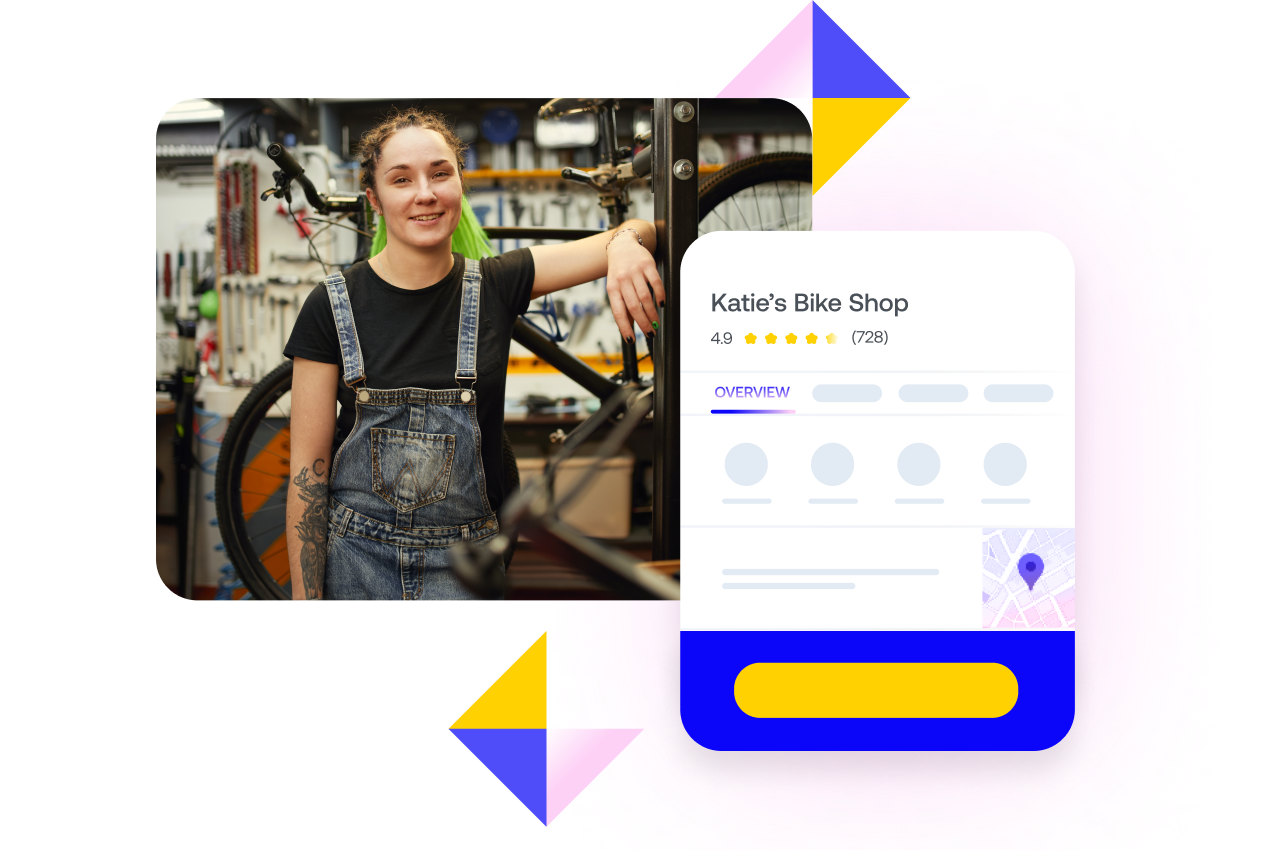Fake reviews can be extremely harmful to your business. Learn how to spot them, get them removed, and what you can do to keep them at bay with Feefo.
Your customers are shopping online; they find your product to perfectly suit their needs, and the reviews are almost too good to be true. But how can they know for sure if these reviews are real or fake? How to spot fake reviews?
Open platforms such as Google, Amazon and Facebook work on the principle of being open to all, so anyone can create an account and leave a review. But this makes it easy for scammers to write and post fake ratings and reviews, and extremely difficult for consumers to decipher which ones are genuine. And it only takes a quick Google to find somewhere to buy fake reviews.
Feefo's Cost Of Fake Feedback report highlights that 72% of consumers are worried about fake reviews. But, while writing or commissioning fake reviews (also known as astroturfing) is obviously unethical, is it actually illegal in the UK? And what can brands do about them?
What is a fake review?
To put it in simple terms, it’s fake advertising – from someone who either wants you to buy a product or not.
Who creates fake reviews?
It’s often people, or online bots, with little or no experience with what they claim to be reviewing.
Sometimes, it may be a competitor writing fake reviews, in order to sabotage a rival business. Or, some businesses may even create or buy fake reviews about themselves, or their products.
Often, your competitors may create fake reviews about your company or products.
How do consumers and businesses feel about fake reviews?
For businesses, the only way to guarantee honest reviews is to ensure they’re posted by genuine customers – which is how invite-only platforms like Feefo limit fabrication.
Here at Feefo, we wanted to explore how the UK is being affected by the growing problem of fake reviews. So we commissioned a survey of over 2,000 UK consumers and 500 small-business owners to find out.
We discovered an urgent need for more protection from fakes. With only 8% of consumers confident they could spot a false review, and 40% of businesses negatively affected by malicious feedback, governments need to legislate to protect all parties concerned.
The biggest findings from the report were that:
- 97% of UK consumers read online reviews before buying
- Only 8% are confident they could spot fake comments
- Nearly half of consumers bought inadequate products and services after reading fake reviews
- False feedback has affected 40% of small firms, and 21% of firms were affected more than once
- Two-thirds of people say knowing reviews have been verified would influence their buying decisions, but three quarters don’t know what a verified reviews platform is#
The EU introduced its Better Enforcement and Modernisation Directive in May 2020, to update consumer rights by banning businesses from using reviews that aren’t left by verified customers. The new rules oblige companies operating in the EU to implement strict processes, aimed at ensuring that published reviews originate from real customers.
Elsewhere, India’s Department of Consumer Affairs is developing a framework to address the problem, and pressure is growing for greater government protection in Australia. Meanwhile, the UK included measures to make fake reviews illegal in its draft Digital Markets, Competition and Consumer Bill, which featured in the Queen’s Speech in May 2022.
However, UK consumers and businesses want stronger action. 70% of consumers say the government should do more to protect them against false feedback. Plus, around four fifths of individuals (78%), and SME owners (81%) want to see the EU directive replicated in the UK. That rises to 88% of older consumers.
Why is fake feedback harmful?
Reviews are important to customers: shoppers want to feel confident that the product or service they are buying is legitimate and good value for money. Everyone needs reliable reviews in order to make the right decisions.
A report by the World Economic Forum estimated that $152 billion of online purchases were directly influenced by fake reviews, making them a costly issue.
Along with being unethical, businesses that buy fake reviews can face the following issues:
1. They'll lose customers
With consumers getting better at spotting fake reviews, businesses that acquire phoney ratings are at risk of turning shoppers against them. Many people are taking steps to ensure they aren’t fooled. More than half (52%) of shoppers say they would be suspicious if they couldn’t see any negative reviews.
2. They’re missing out on genuine feedback
It’s essential to monitor customer feedback to find out how your business is performing. Adding fake reviews into the mix prevents any meaningful analysis of the data that could provide useful insight on what is and isn’t working.
3. They’ll be going against trading regulations
Purposefully misleading customers goes against the Consumer Protection from Unfair Trading Regulations. And It’ll also put a business’s website in Google’s bad books.
4. They're likely to get caught and punished
Some websites set traps to find fake or bought reviews as soon as they’re created. Most review platforms, such as Feefo, shift and filter through hundreds of reviews a day, to ensure that they only publish authentic reviews.
Any business caught attempting to scam customers could face a fine, or be taken to court in more complex cases. What’s more, times could be about to get tougher for the fakers, as in April 2022, the UK government announced plans for further regulation to make purchasing fake reviews illegal, with corresponding increases in penalties.
Are fake reviews illegal?
The short answer is: yes.
Purposefully misleading your customers could place you in violation of the Consumer Protection from Unfair Trading Regulations 2008, as well as advertising codes.
Under this regulation, businesses cannot conduct misleading actions or omissions which are likely to cause a consumer to make a different decision – this may include faking reviews or preventing customers from leaving genuine negative reviews.
Not only is it illegal to post fake positive reviews about your business, but it’s also illegal to post damaging fake reviews about another business, such as a competitor. Trying to sabotage another business like this could leave your business open to being sued for malicious falsehood.
How to spot fake reviews
Fake reviews have become harder to spot over the years, but there are still telltale signs to look out for. Here are our top tips for easily identifying whether the reviews your business receives are genuine or not.
1. The wrong product or service.
One of the most obvious signs of a fake review is if the review is about the wrong product or service.
2. Unfamiliar customer name
See if the reviewer has left their name and cross-reference it with your records. If you don’t have it in your database, there’s a chance they may not be a genuine customer.
3. Poor writing
Does the review itself make grammatical sense? If it has lots of spelling mistakes or formatting issues, it could be a clue that it’s fake.
4. Generic details
Generic reviews that are overly positive or negative and don’t mention any specifics are immediately suspicious. If customers have had an exceptionally good or bad experience with a company, they’ll likely want to leave some details. For example, if the package arrived late, they might name the member of staff that dealt with their inquiry if their experience was positive.
5. No negative reviews
A lack of negative reviews can be a huge sign that what you’re reading may not be the real deal. 52% of consumers get suspicious if there are no negative reviews for the product or service they want. In fact, products with a rating of 4-4.9 stars are more likely to convert than those with only glowing 5-star reviews by a whopping 173%.
6. Lack of emotion
Real reviews will usually include comments regarding how the product or service they purchased has impacted their life in some way. If the feedback doesn’t refer to value, or seems unemotional, it could be fake.
7. Jargon
If the review contains industry-specific jargon – terms you would only expect someone who works in your business sector to know – the comment may have been left by a competitor, rather than a genuine customer.
8. Links to another site
If the review includes a hyperlink to another website, that’s a big red flag. It could be a competitor trying to lure potential customers to their site instead. Even worse, your customers might get directed to an unprotected, dangerous website.
9. High frequency
A sudden influx of either positive or negative reviews should always raise alarm bells, unless you’ve recently made a big push to ask customers for feedback.
10. Strange reviewer profile
Look at the reviewer themselves and the other reviews they’ve left; if they're all the same or are strikingly similar, there’s a big chance they aren’t a genuine customer.
If you’re still not sure if a review is genuine, there are a few online tools you can use to help such as Fakespot.
How to remove fake reviews
The good news is that the laws around fake reviews don’t just apply to businesses; consumers can also be held to account. If you find yourself under fire from unjust feedback (such as a defamatory review from a competitor), here are a few things you can do:
Get solid proof – To get any review removed or to take legal action, you will need to be able to prove that the feedback is false.
Get in touch with the review platform – Contact the review platform to see if the review can be removed.
Report it – If the fake review has been left on your Google ‘My Business’ page, then you can report this through Google’s own interface; however, you’ll need to prove that the review wasn’t left by a genuine customer.
Get legal support – It is possible to sue an individual for leaving a fake review, but the process can be lengthy. Firstly, you must contact a solicitor and have solid proof that the allegations are false. Then, you need to be able to prove that you have lost business as a direct result before you can take it to court.
How to prevent fake reviews
There’s plenty you can do to mitigate the impact fake reviews have on your business’ reputation once you’re aware of the problem.
- Use a trusted reviews platform to collect feedback. Ensure you use a provider that collects reviews from your verified customers. That way you can make sure that your rating is a true reflection of your service, as you know it’s only genuine customers who have left you feedback.
- Make monitoring and managing your digital presence business as usual – especially your Google ‘My Business’ page, as this will often be one of the first places customers research your business.
- Respond to feedback wherever possible, both good and bad. The more you’re seen to be publicly responding, resolving and challenging potentially fake reviews, the more transparent and trustworthy your business will appear to potential customers.
- Follow the international standard for online reviews. While this won’t actively keep fake reviews at bay, complying with the standards set by ISO 20488 can help make sure that your business is always making the right decision when it comes to online reviews. ISO 20488 acts as a detailed checklist that demonstrates best practices regarding online reviews.
Keep fake feedback at bay, forever
The best way to eliminate fake reviews is to take fake reviewers out of the equation. By using an invite-only feedback platform, like Feefo, your business has the power to send a personal review request to genuine customers only.
This means every review is verified, so consumers know they can trust them and your business. It also saves your business precious time, as your team won’t have to check and verify every single review themselves.
Genuine, verified reviews can:
- Increase consumer trust in your business, making shoppers more likely to convert.
- Help both SEO and PPC campaigns by displaying star ratings in Google search results, boosting visibility and website traffic.
- Give you crucial business insights which can be used to improve your service, products and processes.
At Feefo, we’ve been fighting fake reviews for years and our invite-only platform ensures that only genuine customers can leave feedback about your business.
Learn more about Feefo on our Why Feefo page.
Download the Cost of Fake Feedback report
To see our full report on the Cost of Fake Feedback for UK businesses and consumers, which includes additional guidance and market insights on how fake reviews are having an impact, please use the link below.


